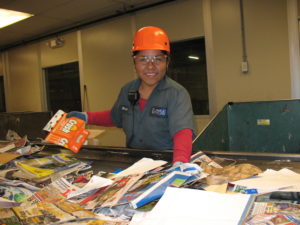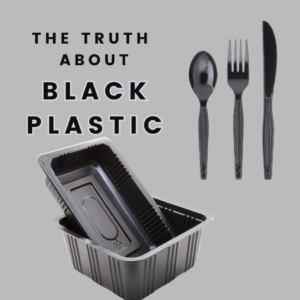The Importance of Aluminum Recycling
Although aluminum is the most abundant element in the earth’s crust and the third most common element on the planet, it was at one time more valuable than gold – due to the difficulty of the refining process. But, in 1886 the Hall Héroult electrolytic process solved this problem and created a relatively inexpensive process that effectively eliminated aluminum’s precious metal status. Because aluminum can be recycled infinitely without diminished quality, and because recycling aluminum is 94 percent less carbon intensive than mining and refining new aluminum, the aluminum recycling process is preferable to both environmentalists and the recycling industry.
Reviving Aluminum Production in the United States
Eureka is dedicated to supporting local and domestic recycling efforts. We ship 100% of the aluminum we process to recyclers within the United States, with the majority going to Kentucky and Tennessee. While Eureka typically tries to keep its materials in the Midwest, or better yet, in Minnesota, the light weight of aluminum along with the concentration of aluminum rolling mills in the eastern part of the country, makes shipment to Kentucky and Tennessee environmentally and economically feasible.
A 2015 Minnesota Pollution Control Agency report on recycling and solid waste sums up the aluminum recycling infrastructure in the US. Aluminum can smelters are concentrated on the East Coast – and even as the industry develops new facilities, it continues to be concentrated in that area. Although Minnesota is home to the Midwest’s largest scrap aluminum recycler, the plant is limited to non-packaging aluminum scrap.
Recently, three new greenfield aluminum rolling mills were announced, marking a significant milestone in the US aluminum industry. These mills, designed to fabricate metal for beverage cans, automotive components, and other markets, are the first of their kind to be opened in the US since the 1980s. The facilities will require ample scrap metal for their operations and used aluminum beverage cans (UBCs) are one of the best sources of material.
Eureka Recycling’s Aluminum Success
Over its two decades in operation, Eureka Recycling has made significant progress in aluminum recycling. In 2022, the company processed 2,500 tons of beverage cans and 100 tons of non-beverage/labeled aluminum cans. Considering that a ton of UBCs typically contains about 65,000 cans, we are talking about a total of approximately 161 million cans processed at Eureka in 2022.
But, as a 2021 Minnesota Pollution Control Score Report points out, Minnesota has a combined material recycling rate of 42.2 percent. While this is the seventh highest rate in the nation, the state’s goals are to dramatically increase this rate. Aluminum UBCs are one of the study’s pinpointed areas for improvement. The report estimated that in 2021, 12,200 tons of aluminum beverage containers ended up in our waste stream. That’s almost 80 million individual cans.
Setting Ambitious UBC Recycling Targets
Despite being the most recycled beverage container in the US, the aluminum industry has recently set ambitious UBC recycling targets to recover even more of this metal. The goal is to increase the recycling rate from 45% in 2020 to 70% by 2030 and over 90% by 2050.
To reach these targets, efforts must be made to implement recycling refund systems, enhance household and public recycling, improve recycling center sortation, and raise consumer awareness.
Transition Plan for MRFs and Effective Deposit Return Systems
Implementing Deposit Return Systems is a key component in racing the industry’s goal. A well-designed recycling refund program must include mechanisms to minimize the impacts on materials recovery facilities (MRFs) like Eureka Recycling and support their transition to the new system.
As a founding member of the Alliance of Mission-Based Recyclers (AMBR) Eureka fully endorses AMBR’s Principles for Effective Bottle Deposit Policies. AMBR advocates for comprehensive bottle deposit systems that improve the recycling system and support a circular economy. AMBR and its member organizations believe that bottle deposit policies should include:
- A broad range of beverage containers, including all carbonated and non-carbonated beverages, all alcoholic beverages, dairy products, and aseptic cartons;
- A minimum 10-cent deposit on containers;
The expansion of reusable and refillable beverage containers; - A transition plan to help curbside recycling programs and MRFs adapt to new policies;
- Minimum recycled content standards to increase bottle-to-bottle recycling, thereby closing the loop in the recycling process; and
- Fair and inclusive standards for informal workers, ensuring that all stakeholders in the recycling industry are treated equitably and can contribute to a sustainable future.
Who are Informal Workers?
Informal workers refer to individuals who self-identify as canners, scrappers, dumpster divers, waste pickers, and/or ground scorers. While bottle laws often depend on informal workers for their success, it is illegal in many cities and states for individuals to scavenge waste that has already been set out for disposal. You can learn more about informal workers at Trash For Peace.
What Does a Transition Plan for MRFs look like?
AMBR proposes several policy solutions to the difficulties MRFs could face when a community transitions to a bottle deposit system. Options being explored are:
- Compensating MRFs for the refund values on containers processed at the MRF. This must be directly tied to material quality;
- Grants, loans, or other financial tools to support MRFs to invest in new and upgraded equipment for the changing material stream;
- Designating revenue share to MRFs; and
- Producer Responsibility policies to fund recycling collection and processing costs.
Eureka’s Commitment to Improving Recycling Infrastructure
Aluminum recycling plays a vital role in reducing environmental impact, conserving resources, and promoting a sustainable, circular economy. As we strive for ambitious UBC recycling targets, it is crucial for organizations like Eureka to continue our work in fostering an efficient and environmentally responsible recycling system. By working together with lawmakers and industry, we can ensure a more sustainable future, reduce waste, and enhance the resilience of our domestic aluminum supply chains.
Share this Story!

Tour Eureka Recycling’s Upgraded Facility on May 31!
Ever wondered what happens to your recyclables after they leave your curb? Join us at Eureka Recycling’s Community Tour Day

Eureka Recycling Celebrates 20 Years and Facility Upgrade
This Earth Day, we are proud to celebrate two major milestones:two decades of pioneering mission-driven materials processing and the launch

Ditching Black Plastic
Black plastics are bad news. They’re toxic, and they’re not recyclable. So why are we still using them for

We Need Action on Electronic Waste
Residents across Minnesota need free and equitable access to electronics and battery recycling. Take Action Now. Legislation enacted in 2007
